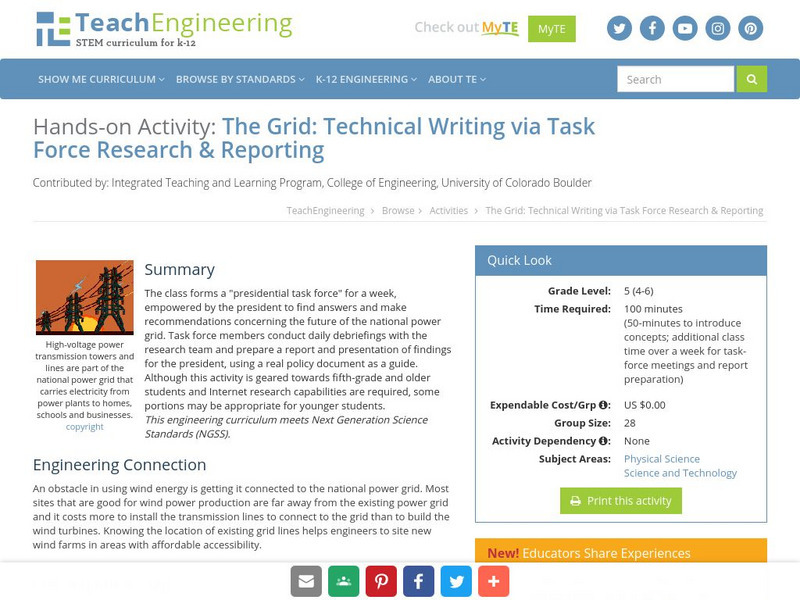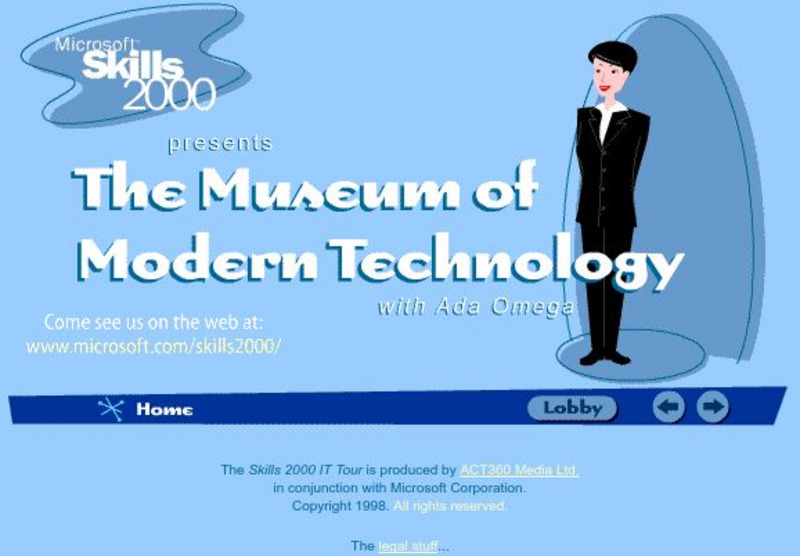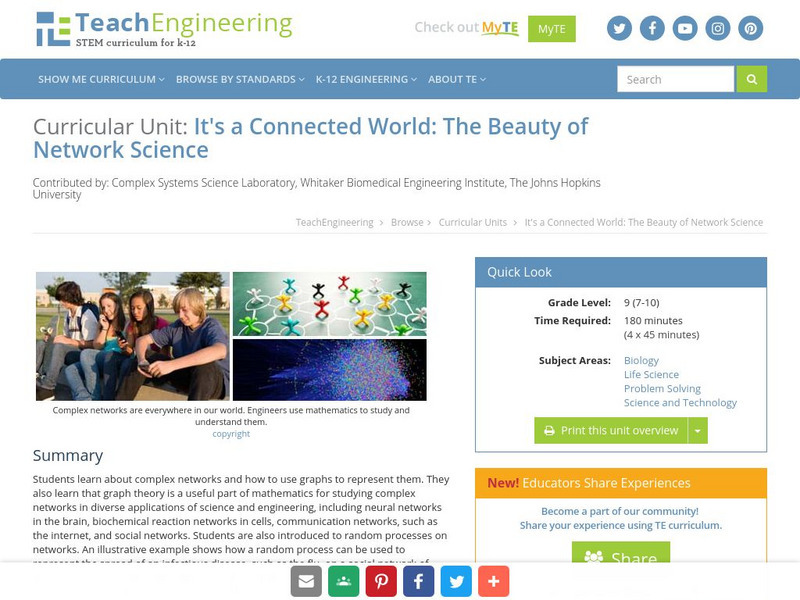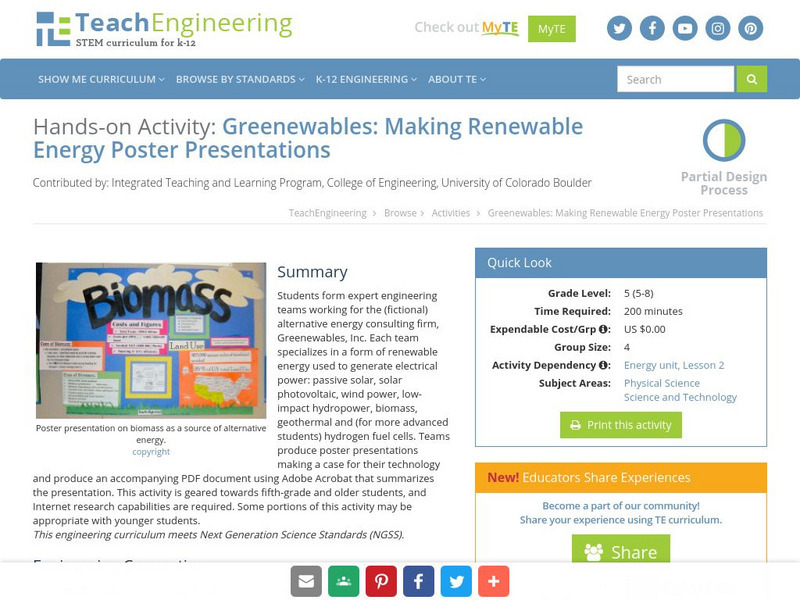TeachEngineering
Teach Engineering: The Grid
The class forms a "Presidential Task Force" for a week, empowered by the president to find answers and make recommendations concerning the future of the national power grid. Task force members conduct daily debriefings with their...
TeachEngineering
Teach Engineering: Android App Development
Students develop an app for an Android device that utilizes its built-in internal sensors, specifically the accelerometer. The goal of this activity is to teach programming design and skills using MIT's App Inventor software (free to...
ACT360 Media
Act Den: The Museum of Modern Technology
Informative, fun, and humorous tutorial that uses cartoon characters to provide an introduction to information technology. The tutorial covers operating systems/desktops, email, the world wide web, and networks.
PBS
Wnet: Thirteen: Concept to Classroom
Concept to Classroom is a free series of award-winning professional development workshops covering important and timely topics in education such as: after-school programs, cooperative and collaborative learning, inquiry-based learning,...
TeachEngineering
Teach Engineering: It's a Connected World: The Beauty of Network Science
Students learn about complex networks and how to use graphs to represent them. They also learn that graph theory is a useful part of mathematics for studying complex networks in diverse applications of science and engineering, including...
TeachEngineering
Teach Engineering: Dam Pass or Fail
Students conduct Internet research to investigate the purpose and current functioning status of some of the largest dams throughout the world. They investigate the success or failure of eight dams and complete a worksheet. While...
TeachEngineering
Teach Engineering: Greenewables
Students form expert engineering teams working for the (fictional) alternative energy consulting firm, Greenewables, Inc. Each team specializes in a form of renewable energy used to generate electrical power: passive solar, solar...
Alabama Learning Exchange
Alex: Pumpkins
During this lesson students will be involved in hands-on discovery activities using pumpkins and pumpkin seeds. They will compare the size and weight of their pumpkins. They will also have an opportunity to taste pumpkin seeds. Students...







